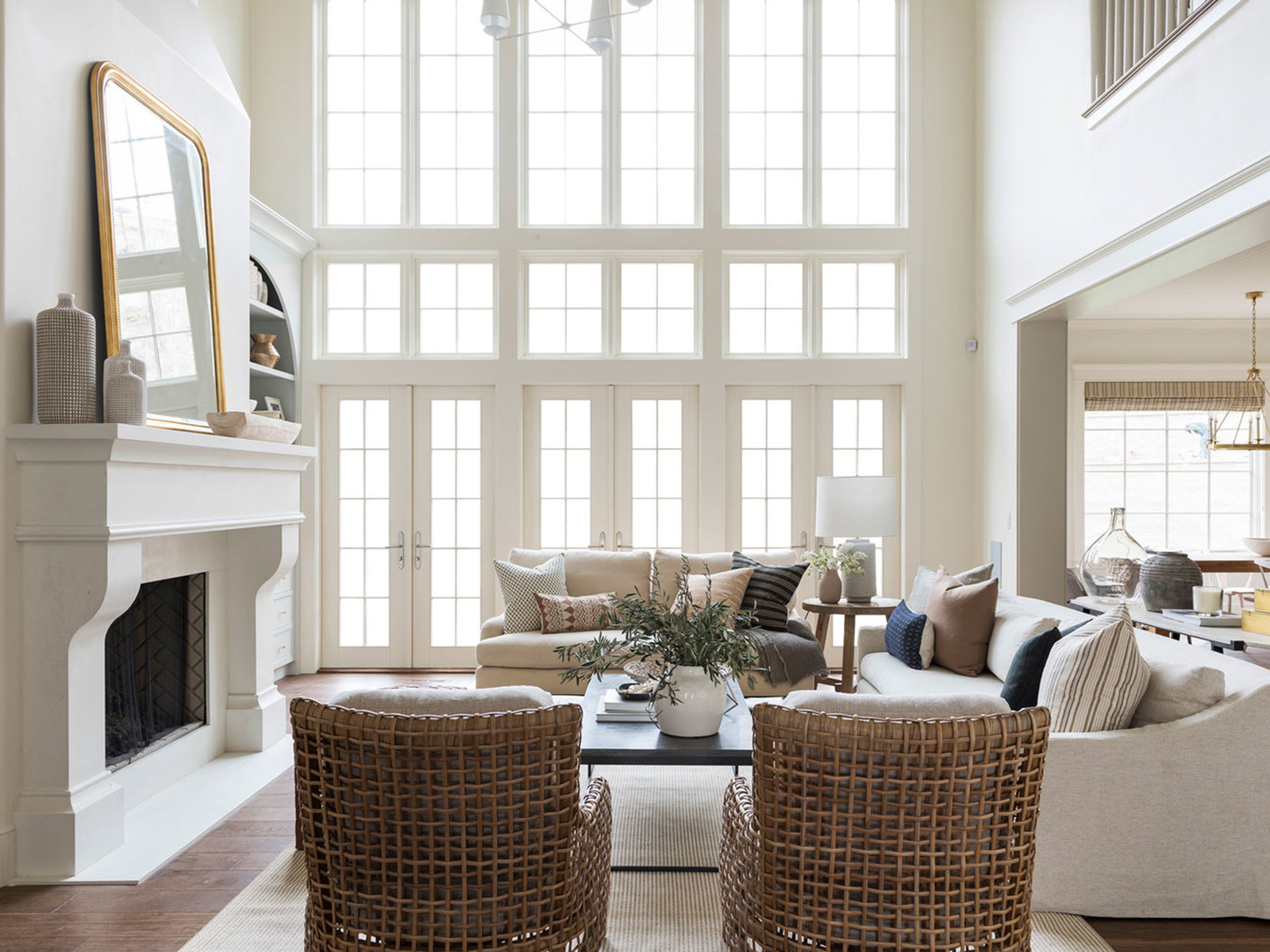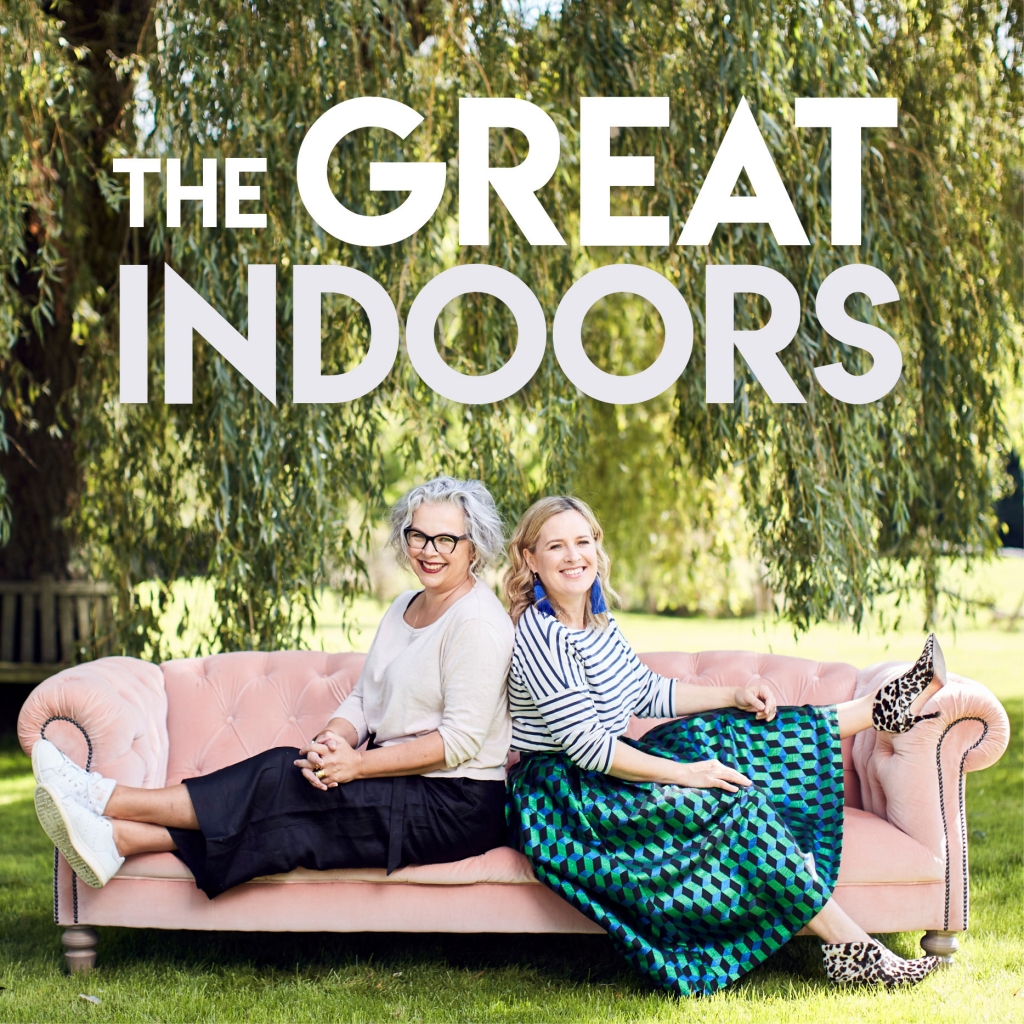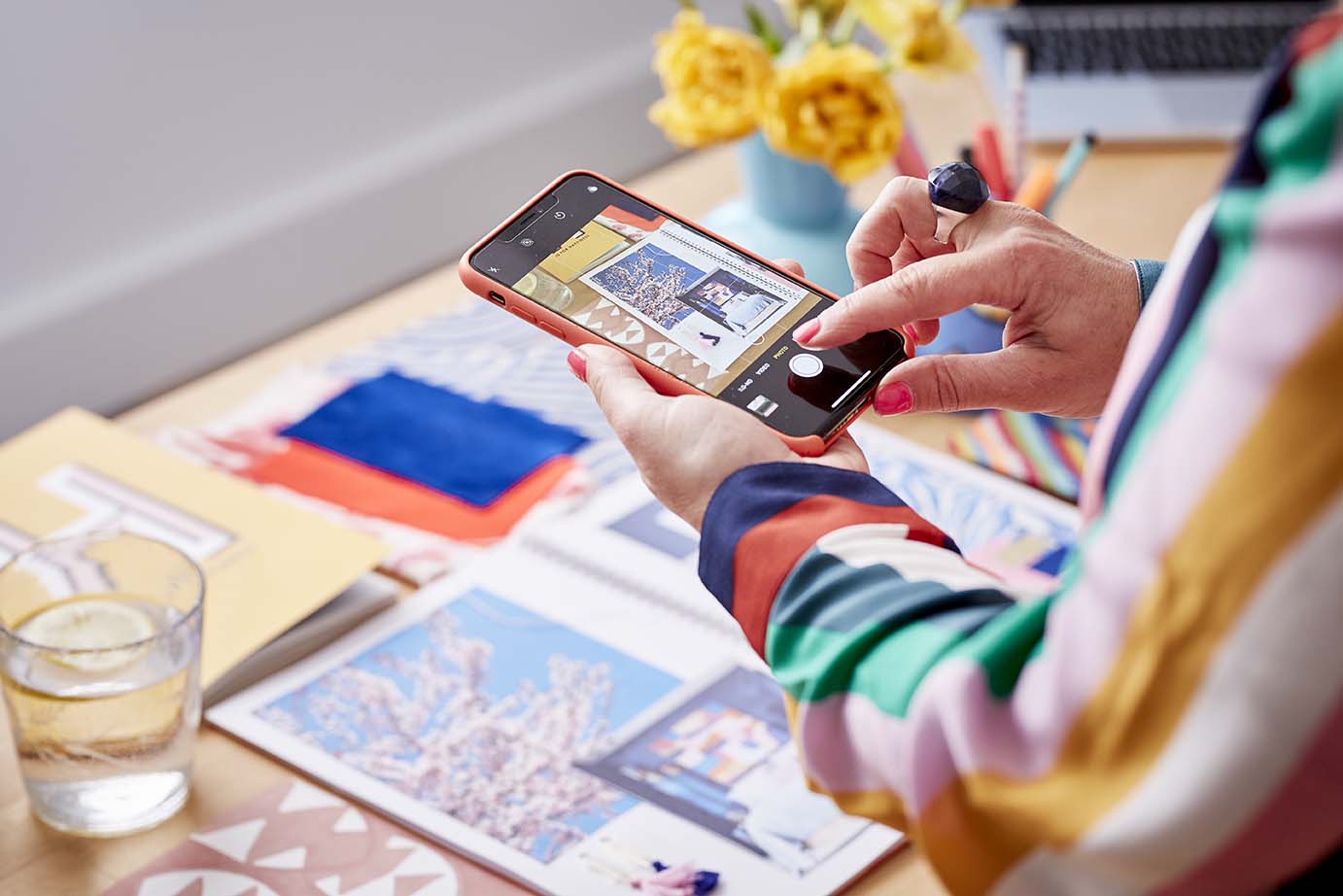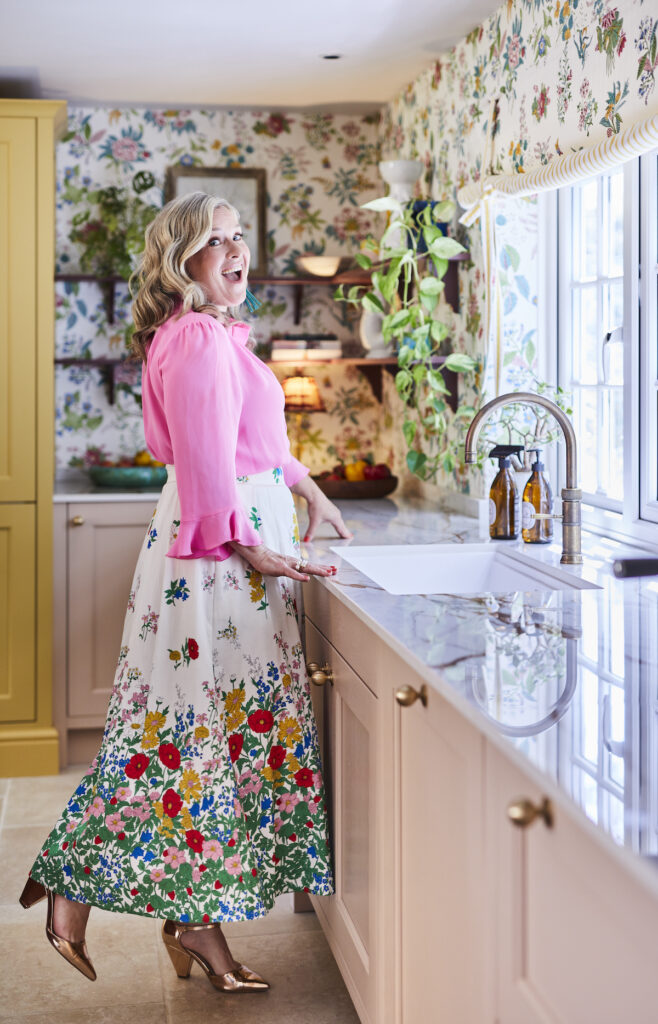North and South facing rooms, Julia Samuel interview, Podcast show notes S10 Ep3

Hello and welcome to my show notes for episode three of the tenth series of The Great Indoors podcast. If you’re feeling a bit out of sorts, don’t know what day it is, what way is up, you get the gist, we can help! We speak to leading psychotherapist Julia Samuel about the challenges of lockdown (no.3 in the UK) and how we can tackle them. We also look at which way your rooms face as it makes a big difference to your decorating. Do check out the full episode here and don’t forget our very creative Facebook group for tons of creativity and advice.
This is one of the questions I get asked a lot so it was great to tackle the topic of how to pick a paint colour to suit the aspect of your room. Here in the Northern hemisphere, north facing rooms have a cooler, more diffused and constant light. Southern rooms have a warmer toned light that is also more striking, casting shadows that change throughout the day. In an East facing room, you get morning light and in a west facing room afternoon to evening light. So it’s vital that you consider the quality of the light when you pick your colour schemes. Here is a recap of the key points:
North facing rooms:
- Avoid cool colours as they will feel chillier
- Avoid colours that have a blue, grey or green base – some paint charts will give you a clue to the base colour.
- Go for colours with yellow or red in its base to make it feel warmer – for eg. ecru, good old magnolia, duck egg and olive green.
- Don’t paint a small North facing room Pure brilliant white, it will result in a drab and uninspiring space, and will likely appear grey.
- Consider Light + Space buy Dulux which is a paint that has light-reflective particles which claims to reflect up to twice as much light back into your room!
- If the above paint doesn’t work as you would have hoped, you can still warm up the room with furniture and accessories.
- As it is a diffused reflected light rather than a direct light, it can look bland. People tend to be drawn to the paler shades in an attempt to lighten and brighten, but there is another way to tackle it!
- Ramp up the contrast, embrace the darkness.
- Avoid pure brilliant white as that has a lot of blue in it and will feel very cold.
- Window treatments – think about grabbing as much light as you can, so fix Roman blinds above the reveal and not inside the recess. Ensure curtain poles are long enough so you can pull the curtains all the way back.
- Keep your window sills and frame white and ideally in gloss as that can help bounce light back into the room.

My kitchen is North facing and I have embraced the darkness with the dark green cabinets to add depth and high contrast perky wallpaper. I accepted that this is a dark room and added my signature bright colours in the accessories to liven up the space.
Kate’s kitchen is also North facing and has opted for paler shades from Wimborne White with stainless steel worktops, warmed up with wood to Cornforth White, a soft grey, which works much better in South facing rooms. She’s now settled on Threadneedle by Mylands but is not so warm in the Northern light, so has chocolate brown on the cupboards and wood accents to add some warmth.
The orientation of the rooms can make a huge difference to paint colour. Two of Kate’s friends used Farrow & Ball’s Elephant’s Breath and in the North facing room it looked like a soft grey and in the South facing room, it was a beige. So when you want to change the colour on your walls, don’t just dab a bit of a tester pot, use the whole thing. Paint some lining paper at least 1m sq and move it around the room to see how it changes in daylight and artificial light.
Kate tried about twenty ‘blush pink’ tester pots for her South facing bedroom and almost gave up as the sunlight was turning them into peach or coral and just ended up like a 1980s peachy palace. She later discovered Threadneedle by Mylands which has violet undertones (she hates violet) but when it went on the wall that was the one! The room needed the cool tones to react with the golden light and it became the perfect shade of pink.
South facing rooms are really the only spaces where white can really work (not for me, however), just think of the Californian cool white on white minimalist interiors. This is quite tricky to replicate over in the UK as we don’t have all that sun but looks amazing in that California light.
- With all that natural light you can go dark
- Err on the side of caution as bright colours (i.e. my type of palette) will become too garish – in a North facing room brights will be toned down and create a sophisticated look.
- If you do want a bright colour in the bedroom, for instance, go for tones with a bit of black in them unless you want it to feel energising and uplifting – so perhaps better suited to a bathroom.

The Californian light and large open spaces can take the all-over whites and creams. Design and image by Studio McGee
East and West facing
In the East facing rooms, you get the lovely morning light and you get light at different times of the day. I remember Trinny Woodall who was our first ever interviewee on the podcast (S3 ep2) said her top tip for bathrooms is it must be East facing, as it gives the most flattering light when applying make-up. My office is East facing and I must admit I do all my video content and Zoom meetings in there as it does help give the skin a certain glow. And then, of course, West facing rooms will get that lovely warm evening glow. In an ideal world, if you were lucky enough to build and plan your own home, you could potentially make sure your bathroom is in the East, Living room in the South etc etc but that’s not the real world so use colour and artificial lighting to help create the vibe you want.
Interview with Julia Samuel
Julia Samuel is a prominent psychotherapist who has worked privately and for the NHS for 30 years and has done some pioneering work around grief and bereavement and how we deal with change. She has written two best-selling books, most recently This Too Shall Pass: Stories of Change, Crisis and Hopeful Beginnings, which was launched with uncanny timing – last March. This has led to Julia becoming a somewhat unofficial therapist for the pandemic.
In your capacity of the Coronavirus counsellor, how is the mental health of the nation as we have our 3rd lockdown?
“I’m afraid it is dropping on a daily basis and there is a shadow pandemic to the Covid pandemic which is a mental health one. In particular with young people, their anxiety has gone up by 10-15% and if people had pre-existing anxieties or disorders they have got worse, if there were fractures or difficulties in relationships and households, they have got worse.’
‘As human beings, we are social animals, we are born and wired to connect and the biggest aspect of lives that enable us to deal with difficulty is love and connection and being social. So the social distancing and retreating from life has affected everybody.”
We are all struggling with life, school and work, all happening within the same four walls.
“The difficulty is boundaries. We need to engage, connect and switch on and do something move, and step back and step into something else. A lot of people are working, eating, fighting, dancing and laughing in the kitchen and competing for wifi, space and data. There are people from different aspects of life who are finding it much worse than others, people who losing their jobs, homes, relationships and then people feel guilty they are complaining, which is unhelpful.”
“Our emotions are there to give us information and pay attention to. We need to do two things, we need to look at the dark, name it and allow it, and find a way of expressing it and then take a breath and turn our attention to the light, things we are grateful for, things we can look forward to, and things that give us pleasure, strengthen us and give us joy.”
“In the framework of this pandemic, we have control over how low our mood goes. Everything you put into your system, everything you watch, listen to, eat, move, who you speak to, everything affects your mood and if you do that mindfully and in a way that builds resilience, you will surf the waves of it much better. You can’t fight this, a lot of people want to have control if there’s any time that we fundamentally have no control is now. The more you accept the aspects of life you cannot change, the more likely change will occur. The more you block it and resist it you make your situation worse.”
Talking of small wins, in terms of interiors, we find that design can be an important part in establishing boundaries between yourself and the family. Do you feel our homes can support us and work against us as well?”
“There is quite a lot of psychological research about what we can see in our surroundings, for instance when hospitals put up brightly coloured pictures and improve the quality of the decor, people get better quicker. Your surroundings have a big impact on your mood and in a family situation, you need boundaries and a time when you can connect and time to be on your own. Space is important and makes a difference to your psychological space if you live in a small area and there aren’t the walls then you need to create rituals and habits that mark boundaries in your day.”
“I spoke to someone who shares a small flat with his wife and baby. Every morning he puts his coat on and walks around the block, comes back up takes off his coat goes to the corner of the room and he works. Then at the end of the day, he puts on his coat and leaves before coming back up.”
“It sounds mad but our bodies remember so when he puts his coat on to go out it presses the button, going to work and in reverse, in the evening, the going home button turns on. That is a very nice, simple boundary that doesn’t take a lot of effort or willpower. It’s an action and movement that marks the beginning and end of the working day.”
What practical tips can give for the current situation?
“As a family have your own COBRA meeting (Cabinet Office Briefing Room – held in Room A), talk about your strengths and weaknesses, what drives you mad and what space do you need as a family. Agree times that are likely to be tense times, and how you can negotiate with each other. Each individual needs a structure for their day that is a flexible one, you have to go outside every day, whatever the weather, even if it’s for 10 or 15 minutes, something that gives you a purpose. We all have to achieve something so we can say that’s our mini win for the day.”
“We know from research that it’s not willpower that makes all this happen, it’s emotion. Keep those tasks small, I have had furniture repaired, painted walls, made some cushions and bought new lampshades. Small things can bring you pleasure, buying flowers is an amazing source of delight and simply lighting a candle can help.”
Has your taste changed, have you been surprised by the choices you’ve made?
” I’m writing another book and I’m surprised at how much I like external order to match inner calm to concentrate. A lot of people have done a lot of clearing out and there is something cathartic about it, a sense of Marie Kondo internal order.”
“If I had one message is that love is a strong medicine and with all our other choices, that’s what we need to prioritise. When people look back at this lockdown and their lives the thing that matters to them the most is their love and connection to others.”
A huge thank you to Julia for taking the time to share her wonderful knowledge and advice, our fab producer Kate Taylor from Feast Collective and you, our lovely listeners.













